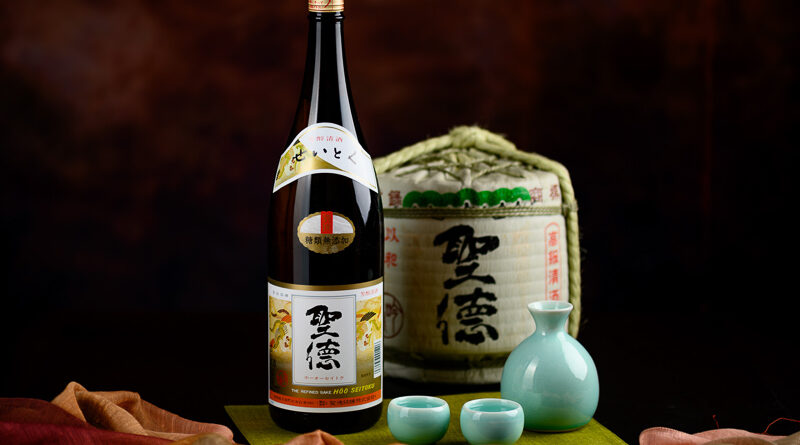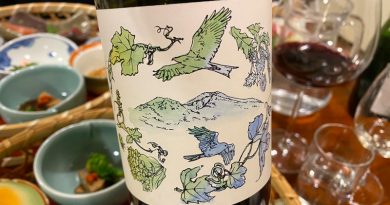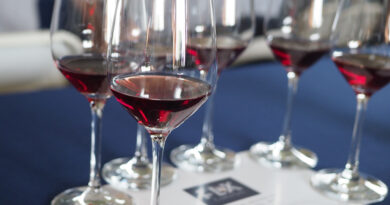Gunma Craft Sake: tasting a range of sakes from six breweries from the Gunma prefecture
Gunma is a land-locked prefecture located almost at the centre of the country. It has a reputation for its natural beauty, snowy mountains, pure water, hot springs and Wagyu beef. This is a tasting that brought together six of its sake breweries under the banner of Gunma Craft Sake. They are Asama Shuzo, Nagai Sake, Nagaihonke, Ooteneshuzou, Seitoku Meijo and Tsuchida Sake. I was really impressed with the overall standard of the sakes and also the stylistic diversity represented. It’s good to see an initiative like this, because sake is such an interesting drink and belongs on the table, not just with Japanese cuisine, but with a wider range of foods.

Nagai Sake (brewery) MIZUBASHO Yukihotaka (rice) Junami Daiginjo
14% alcohol. Made with Kaze yeast. Classic aromas of fresh, supple pear and lychee with a slight hint of banana. The palate is light, pure, elegant and really fresh with a nice texture, delicate fruity notes and a subtle umami savouriness. It’s smooth but finishes dry. Really pretty and elegant. 92/100
Nagai Sake (brewery) MIZUBASHO Yukihotaka (rice) Dessert Sake
14% alcohol. Made with Yukihotaka rice and Kaze yeast. Distinctive nose of cream, rice pudding and creamed cheese, with a touch of banana. It’s sweet and really creamy on the palate with some fresh fruity notes but the main theme is custard and rice cakes, with a savoury mealy edge as well as quite a bit of sweetness, giving a very rounded feel in the mouth. Distinctive and delicious. 91/100
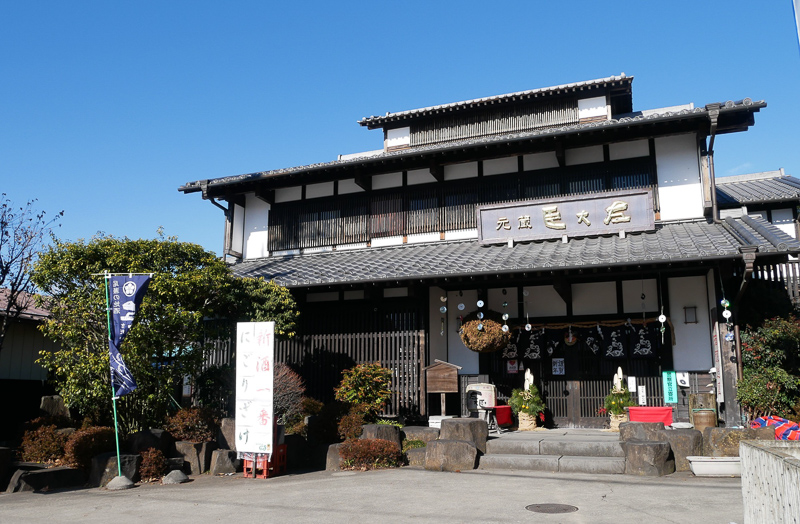
Ootoneshuzou (brewery) Sadaijin Koshihikari Junmai
16% alcohol. Kaze yeast. This is made with Koshihikari rice. Ripe and sweetly aromatic on the nose with apple, pear, melon and a touch of honey. In the mouth this is rich with bold melon fruit notes as well as some table grape, and a long, savoury finish. Lots of flavour here, but everything pulls together well, and the concentration and finish are superb. There’s almost a slight meatiness here, as well as some steamed rice notes. 94/100
Ootoneshuzou (brewery) Hanaichi Monme Junmai Ginjo
14% alcohol. Wakamizu rice, Kaze and Brewing Association Yeast #1801. Supremely delicate and fine with light fruity flavours. Pear, watermelon and crisp green apple, with some nice texture and a touch of sweetness, finishing pure and fresh. There’s a lovely green hint here, too. 92/100
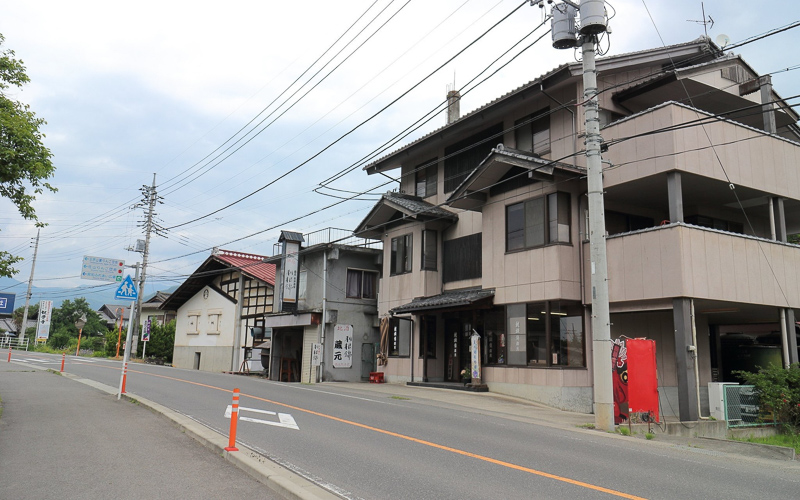
Nagaihonke (brewery) Tonenishiki Koshihikari 90 Junmai
17% alcohol. This is Gunma G2 yeast, Koshihikari rice with 90% polishing ratio (10% removed). It has a creamy, fruity nose with some green hints. In the mouth there’s a brightness, with some powerful steamed rice and herb notes, and some sweetness and texture from the alcohol. There’s even a bit of grip and some spice on the finish. Quite full flavoured, this is very food compatible. 90/100
Tsuchida Sake Company TE TO TE Junmai Kimoto
16% alcohol. 90% polishing ratio, and the yeast starter is made using the Kimoto method, prepared by hand and encouraging natural lactic acid bacteria to drop the pH to encourage good yeasts. Rice variety is Asahi no Yume. Full coloured this has an intriguing nose of cheese and cream, with some savoury bready notes as well as yellow plums. The palate is really rich and textural with warm dairy notes, some hazelnut and a long, spicy, creamy finish. Honeyed and intense with a warmth on the finish, and a lot of complexity. So distinctive. 94/100
Tsuchida Brewing Company Tsuchida Kimoto Junmai Ginjo
14% alcohol. This is made from Asahi no Yume rice, with a 60% polishing ratio. Yeast is Brewing Association Yeast #701. Made with the Kimoto method of fermentation starter preparation. This has a distinctive nose of banana and cherry, as well as some fine creamy hints. The palate is bright, fruit driven, but also has some deep creamy texture. There’s a harmony here, with a sense of delicacy, as well as a nice tapering finish. Notes of banana and cream are apparent. Really distinctive. 91/100
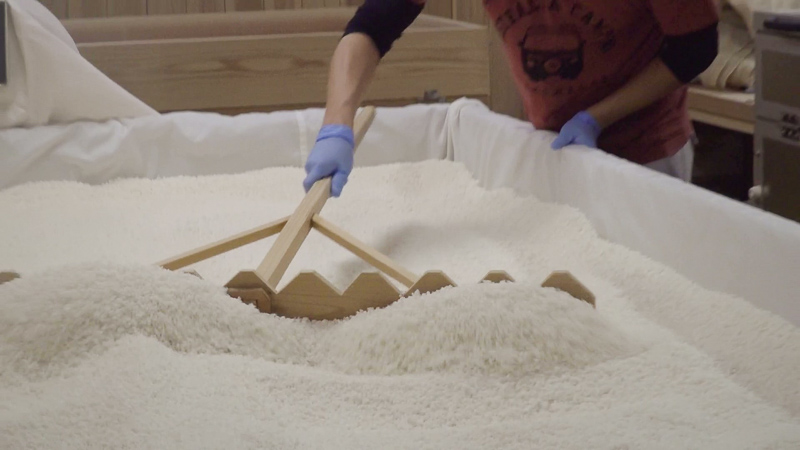
Asama Shuzo (brewery) Junmai Daiginjo Higen Rei
15% alcohol. 20% polishing ratio (80% removed). They grow their own Kairyoshinkou rice, and use their own yeast strain. This is rounded and beautifully fruity, with delicate yellow plum, watermelon and lychee notes, as well as a fine spiciness. It has a lovely fruit-driven flavour, and the finish is long and warmly spiced, offsetting the sweet fruit nicely. A beautiful expression of Junmai Daiginjo at its fruitiest and friendliest, but there’s also a lovely elegance here. Very fine. 94/100
Asama Shuzo Junmai Daiginjo Yanba no Kaze
15% alcohol, 45% polishing ratio. They grow their own Kairyoshinkou rice, and use a special yeast strain that was isolated from Princess Michiko, a variety of roses that was dedicated by Dickson Nurseries Limited in the United Kingdom to Michiko, the Empress Emerita of Japan. It’s floral, enticing and exotic with lovely melon and pear fruit on the nose. The palate is fresh and supple with pure pear and yellow plum fruit, with a hint of green apple and a lovely lightness. There’s a touch of lychee, too. Finishes fresh and pure, with a lovely wash of mellow fruit and a subtle, fine spiciness. Such a beautifully expressive sake. 93/100
Seitoku Meijo Houou Seitoku Junmai Ginjo
15% alcohol. Gohyakuman-goku rice from Niigata prefecture, polished to 50%. Yeast is Brewing Association Yeast #1801. This is delicate and quite nutty with some savoury hazelnut notes framing the delicate, honeyed, creamed rice flavours. It’s mealy and mouthcoating, with nice texture and precision. Not overly fruity: focusing more on the gentle savoury umami notes. 91/100
Seitoku Meijo Seitoku Bessen Futsu-shu
15% alcohol. This is 70% polishing ratio (30% removed) with Brewing Association Yeast #901. This is the lower grade of sake (Futsu-shu) but it’s pretty good. It’s richly flavoured, mealy and creamy with a savoury dairy and nutty character. It’s not so much about the fruit. There’s some rice pudding here, with a warm finish that’s quite dry. 88/100

